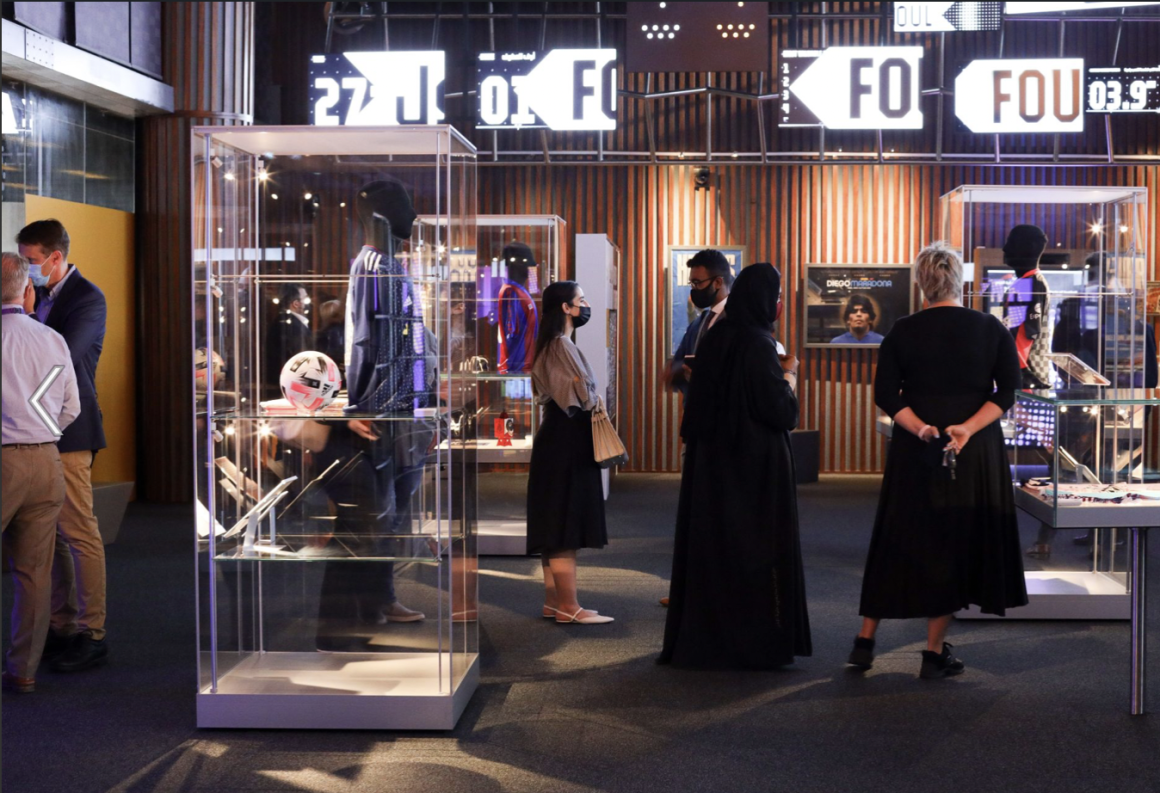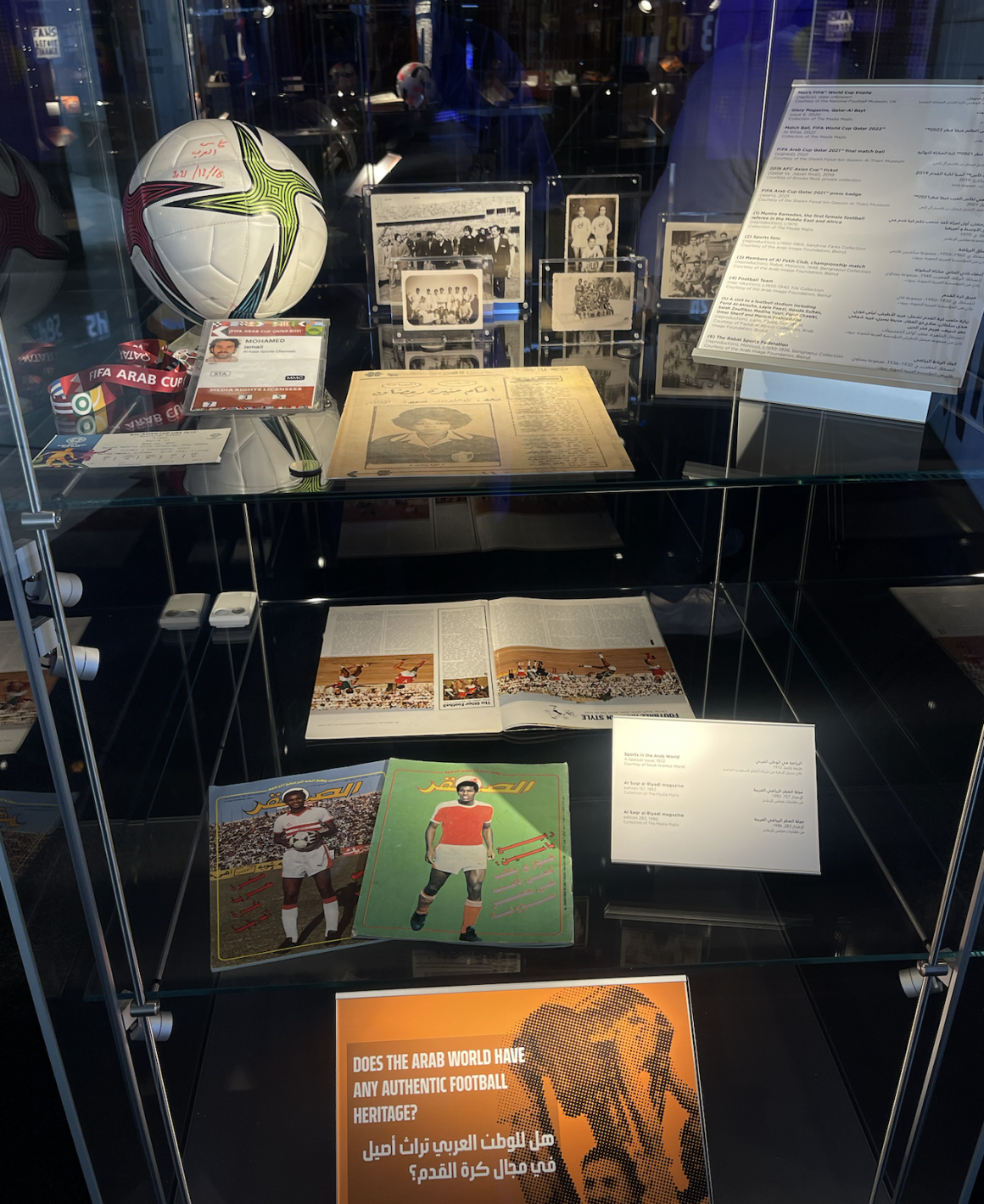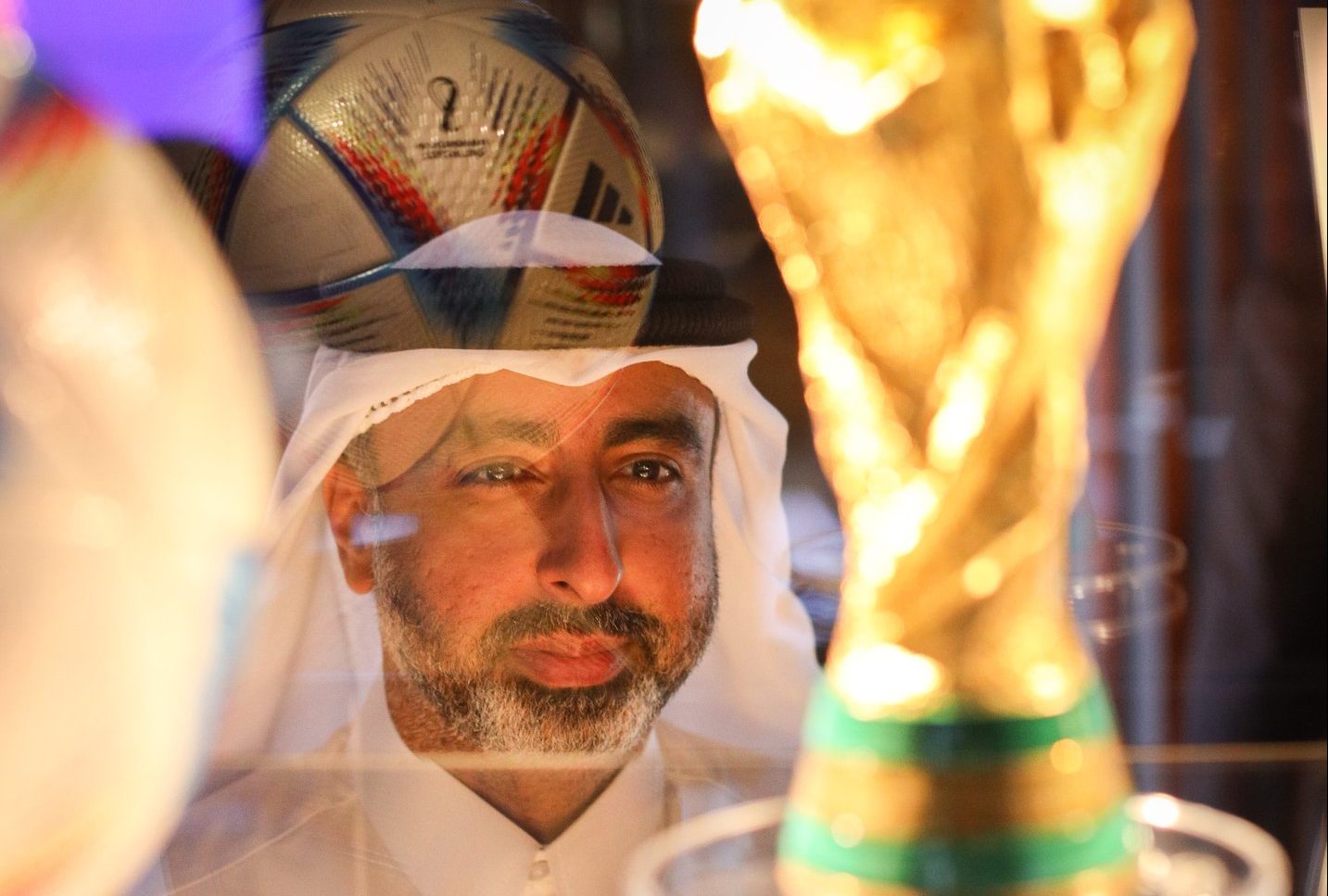With less than 90 days left for the 2022 Qatar World Cup, a new exhibition hosted by Northwestern University in Qatar (NU-Q) explores the sport’s validity by examining its history through the lens of the media.
It’s hard to argue that football isn’t the world’s greatest sport or the most celebrated event. In 2018, 3.5 billion people tuned in to watch the 2018 FIFA World Cup in Russia, making it one of the most watched events in television history.
What makes football unique is its ability to transcend the pitch. The game’s beauty is not just shared on the field but out in the stands, the homes of viewers and the streets outside of the stadium; football is undoubtedly more than just a game.
A curated museum for football fans
Open to the public, the Media Majlis at NU-Q is the first of its kind as it offers guests a surreal experience that would impress an admirer of the game.
The Media Majlis temporarily furnishes more than 280 pieces of physical and digital content that are either loaned, licensed, or produced by organisations to provide visitors with a vibrant narrative of the football world.

The exhibition leaves a digital-savvy first impression as it is surrounded by the principal display titled “Codifying the Game.” The installation uses a real-life football game to demonstrate how data and analytics have fundamentally changed how the game is played, managed and viewed in today’s world.
The exhibition is also assembled with several interactive installations; one is titled “Where do you stand?” a short film that provides audiences with an option to engage by allowing them to share their opinions on issues within the sport.
The film is situated around a group of Qatar graduates working in the communications and sports industries, who discuss the role of the media and other elements within football as they seek an answer to whether or not the sport should be considered a “beautiful game.”
Football in the Arab World
Northwestern’s Majlis delves deep into the Arab world’s football heritage and history.
Western media has criticised FIFA for hosting a World Cup in a country believed to have no ties to the football world; nothing could be further from the truth.
Much of Qatar’s football history has been unexplored by western audiences as the country’s involvement in the sport dates back to the 1940s.
The exhibition fossilised several antique photos and documents that paint a timeline of football’s legacy within the region.

Lost and forgotten in the past, the story of Munira Ramadan Abkar Muhammad Warsh is placed on a showcase at the exhibition.
Munira was the first Sudanese woman to work as a football referee and the first known woman football referee in the Arab world and Africa.
The tale of Munira is untold and isn’t acknowledged by western “experts,” merely due to football’s whitewashing.
Calling it what it is
Jack Thomas Taylor, a curator at the Media Majlis, stressed the value of the exhibition by naming it as evidence-based storytelling.
“This un-ordinary exhibition encourages audiences to explore the highs and lows, blemishes and polishes, the great and the greed, and the uprises and downfalls of football and the media,” said Taylor.
Northwestern’s exhibition doesn’t shy away from addressing the controversial accounts within football.
Sexism, discrimination, racism and corruption are all discussed in the exhibition.
In light of the Qatar World Cup, a “The Worker’s Cup” screening is shown for all visitors. The documentary film explores the lives of migrant workers who built the infrastructure around the World Cup, and is centred around them competing in a football tournament of their own.
Qatari youth advocate Shaikha Ali Al Marri commended the efforts of the exhibition, in discussing the role of culture and religion in the game of football.
“The exhibition helps us to look at football from various cultures, especially the Islamic and Arab cultures, in light of Western media and cultural hegemony,” she said.
Words don’t give justice to the message of the exhibition, as a picture is worth a thousand words.
‘Is it a Beautiful Game?’ will be open to the public until Saturday, 12 November, 2022.







